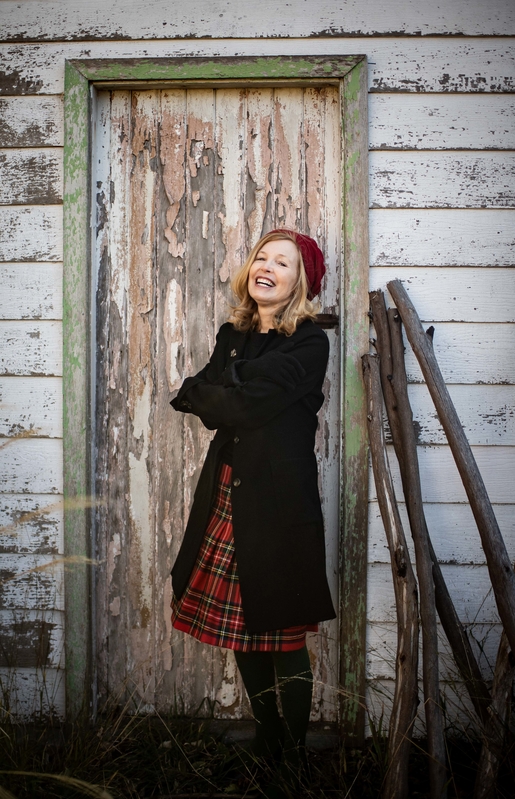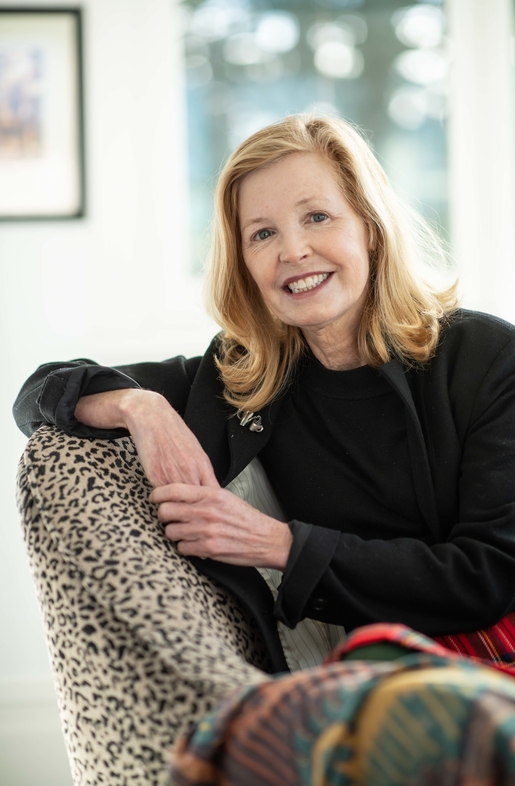There’s a pattern. Initially, for instance, author Carol Major suggests this story be about her publisher, Spineless Wonders, rather than herself. Then she proposes it be about her and her sister (Canadian poet Alice Major), who is releasing a new book simultaneously. More of the pattern is found in the fact that for many years Major didn’t peddle her drawer full of manuscripts with appropriate vigour, because her late daughter was an artist, and Major wanted success for her daughter rather than herself, as if there were only so much success to go around – which there probably is.

You see it, too, in her being better known for mentoring and advising other writers than as one, herself. She does this at Varuna, the National Writers’ House in Katoomba (a retreat for uninterrupted work), where she has become known as “the book whisperer”, so astute is she in helping clarify intent and meaning. The long list of her beneficiaries includes Leah Kaminsky, Vicki Laveau-Harvie, Andrew Kwong, Alice Nelson, Yvette Walker and Barry Lee Thompson.
Now, finally, she has her own first book out. Penned since she lost her daughter, it was one she had the confidence to push. The Asparagus Wars is a luminous, sometimes humorous and often harrowing memoir, interweaving many strands. One is the courage and wit of her adult daughter, who, already rendered virtually immobile by muscular dystrophy, then contracts terminal bowel cancer. Another is the distress and conflict among those trying care for this daughter (including one party resolutely prescribing blended asparagus), and a third is the parallels between war as a geopolitical eruption and war in everyday relationships. Major partly wrote the book while visiting French towns savaged by the Great War, and she had lived through such in-the-trenches experiences as being in a surgical “tent” with her daughter while her bowel was operated on without anaesthetic, because she was too weak to withstand one.
These threads are drawn together as a series of letters penned to her daughter after she’s died. One agent insisted this format would distance readers, whereas it actually creates a unique intimacy akin to eavesdropping, and has resulted in The Asparagus Wars being shortlisted for the prestigious International Beverly Prize for Literature.
Born in Scotland, Major migrated to Canada with her family as a child, and then came to Australia. While completing a doctorate of creative arts at UTS, she spent time at Varuna, and fell in love with the Blue Mountains, which she found “like Scotland, Canada and Australia all in one place”. She moved to Katoomba and in 2008 began consulting at Varuna. “The thing I always loved was switching people on to their own way of speaking and story-telling,” she says in her soft tangle of accents. “I get such a big kick out of it happening, because I love seeing stories get out there. I love seeing people’s different ways of seeing this world… a wonderful cacophony of ways of being.”
She is believes mentoring has made her a better writer herself, because she interrogates her own work for the flaws she finds in that of others. It shows, as does her acuity. Major says she has long been suspicious of good guy/bad guy and good mother/bad mother binary perspectives of the world, and adds that a challenge in writing the book was telling the story without making herself a good, bad or judgemental presence.
The narrative’s sharp-edged clarity is partially accounted for by Major’s keeping a diary, but also because she possesses what she calls “an incredibly visceral memory”. As a child, touch and feel were her shortcuts to understanding, and when she writes she likens the process to her body remembering rather than her mind.
So what was it like to revisit such traumatic events, and conjure them in words? “It tears you apart,” she says, “because you have to go back into those scenes and look at them. I mean I absolutely had to see that scene in front of me, and relive it, and live it as clearly as I possibly could. So it’s not writing about something, it’s actually being in it completely.”
In the process she came to see herself through a softer lens: a woman whose first son was taken from her because she was unmarried, and who lost another son and daughter in an ugly custody dispute. “There was a tenderness toward myself that I haven’t felt before,” she says.
A key to the book’s impact is a maxim she’s oft repeated to other writers: “It’s not the content, it’s the meaning of the content.” “What I’m trying to do is to take someone not to an understood place,” she explains, “I’m trying to take them to a felt place.”
Her next project, a new novel, is well underway. “The minute I finished Asparagus Wars I was bereft,” she says. “It’s like finishing reading a novel, and you think, ‘Oh, I need another narrative to hold me together.'”
Perhaps this one won’t languish in the bottom drawer for so long.
The Asparagus Wars: available on line; in bookshops October 1.
